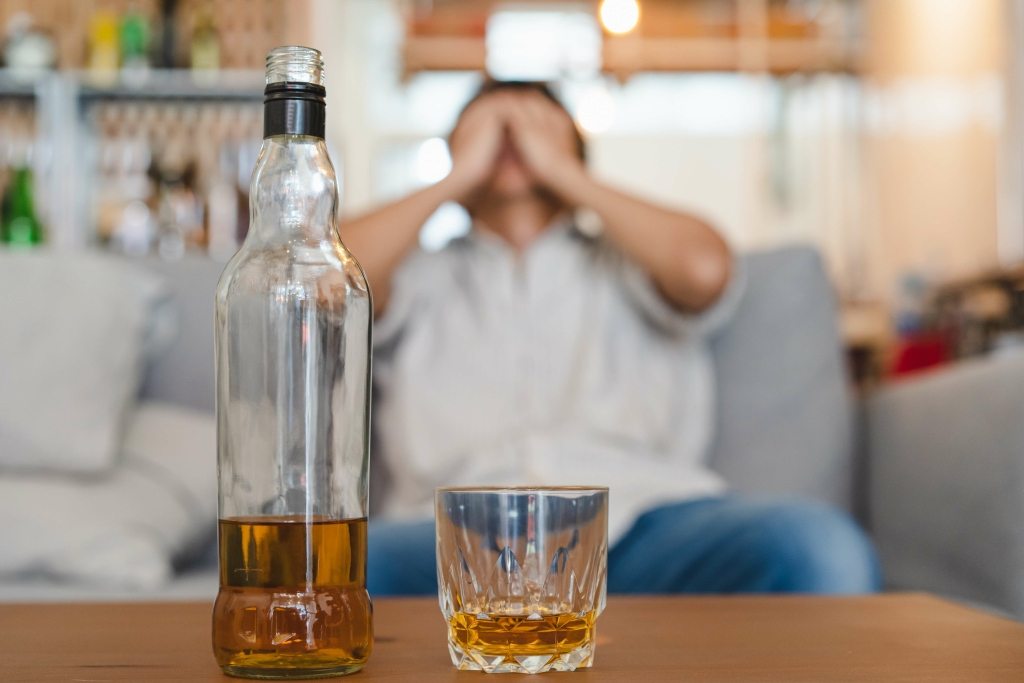Does Alcohol Cause Hair Loss? Debunking the Myth
Alcohol also inhibits nutrient absorption by harming the lining of your digestive system over time, damaging your intestines until they can’t transfer nutrients to the blood. Without proper protein, the production of keratin slows; this protective agent bonds hair cells together and your hair becomes prone to split ends and breakage. Similarly, zinc and folic acid, which are essential for hair growth, aren’t soaked up by your follicles. Alcohol also makes it more difficult for your body to burn any foods you eat.
- If you have any medical questions or concerns, please talk to your healthcare provider.
- Limiting alcohol consumption and seeking professional help for alcohol addiction can significantly improve overall health, including the health of your hair.
- However, lifestyle choices, such as diet and alcohol consumption, can also play a significant role in the health of your hair.
- Some hair care and household products contain alcohol that may also damage the hair with excessive use.
So damaging your liver with excessive alcohol can cause poor digestion and reduced nutrient intake. With fewer nutrients in your body, your hair has a hard time growing. Some people have also wondered about the effects of using rubbing alcohol in their hair. Rubbing alcohol is a common household item and is often used for cleaning and disinfecting purposes. Applying rubbing alcohol to your hair and scalp can be extremely drying and damaging. It can strip away natural oils, leaving your hair dry, brittle, and prone to breakage.
What Are the ‘Normal’ Causes of Hair Loss?
By understanding the potential impact of alcohol on hair health, you can make informed decisions about your alcohol consumption and take steps to maintain the well-being of your hair. Prioritizing a balanced diet, staying hydrated, and seeking professional guidance can contribute to healthy hair growth. Here’s the deal, alcohol and hair loss are not directly related, but drinking does cause other health issues that trigger hair thinning or loss.
If you or someone you know is struggling with alcohol addiction and experiencing hair loss, seeking professional help is crucial. However, it is clear that excessive alcohol consumption can potentially disrupt hormonal balance, which may have implications for hair growth. Understanding the intricacies of the hair growth cycle and the factors that influence it is crucial when examining the potential effects of alcohol on hair growth. While alcohol consumption can impact certain aspects of hair health, it is important to consider the interplay of multiple factors in determining hair growth. Hair loss supplements can also help restore and address any nutrient deficiencies you might have from excessive drinking. These vitamins have the right nutrients your body needs to start improving your skin, nails, and hair.
Strategies to Aid Hair Recovery
Now let’s look at the connection between alcohol, diabetes, and alopecia. After biotin is ingested, it is broken down in the stomach into biocytin and biotin-oligopeptides, which are further processed by the enzyme biotinidase 6 Unbelievably British Easter Traditions (8). Then, the biotin is absorbed in the small intestine and stored in the liver (8). There are many holidays worldwide in which alcohol is important, such as Cinco de Mayo, St. Patrick’s Day, Mardi Gras, and New Year’s Eve.

However, it is known that alcohol can interfere with folic acid absorption, and it even increases the excretion of folic acid through the urine (26). On the flip side, some specific alcoholic beverages can help the healthy bacteria in your gut. For example, small amounts of wine (half a glass during a meal) can improve digestion and encourage the growth of healthy bacteria. This has to do with the probiotics found in most wines as a direct result of the fermentation process (16). In short, alcohol is a promoter of dehydration which then leads to the improper functioning of crucial organs (including the skin). Improper hydration of the skin can cause a loss in strength and elasticity, which can lead to long-term damage to the follicles and hair shaft (11).
Practicing Good Hair Care Habits
Alcoholism is linked to disruptions in your hormones, specifically for your thyroid. Your thyroid regulates hormones in your body, and when this process is interrupted by either hypothyroidism or hyperthyroidism, hair loss can occur. Telogen effluvium is a condition that causes your hair to stay in the resting phase of growth. When this happens, your hair can no longer grow and will begin to fall out in large amounts. Typically your hair moves through three phases of hair growth, so having your hair growth cycle stuck in one phase is detrimental to your hair’s health.
Anytime your body is out-of-balance, it uses all the nutrients it has available for the most important functions first. Most research on the topic of alcohol consumption and heavy drinking focuses on serious implications, like the effects on the brain, heart, and liver. It’s true there is a lack of research on whether stomach inflammation specifically caused by alcohol affects hair loss. However, when we look at the high occurrence of alopecia in people with IBD, the connection appears strong. In other words, it seems likely that digestive issues can be factors that cause hair loss.
Can You Develop Heart Palpitations From Drinking Alcohol?
For individuals concerned about the effects of alcohol on hair growth, it’s essential to find a balance. Limiting alcohol intake and avoiding excessive consumption can help mitigate its potential negative impacts on hair health. Moderation is key, and it’s advisable to follow guidelines recommended by health professionals regarding alcohol consumption. https://trading-market.org/most-people-with-alcohol-and-drug-addiction/ One of the most frequently asked questions is whether your hair will grow back if you stop drinking alcohol. Suppose your hair loss is primarily due to alcohol-related issues, such as dehydration, nutrient deficiencies, or immune system suppression. In that case, quitting alcohol and adopting a healthier lifestyle can lead to hair regrowth.